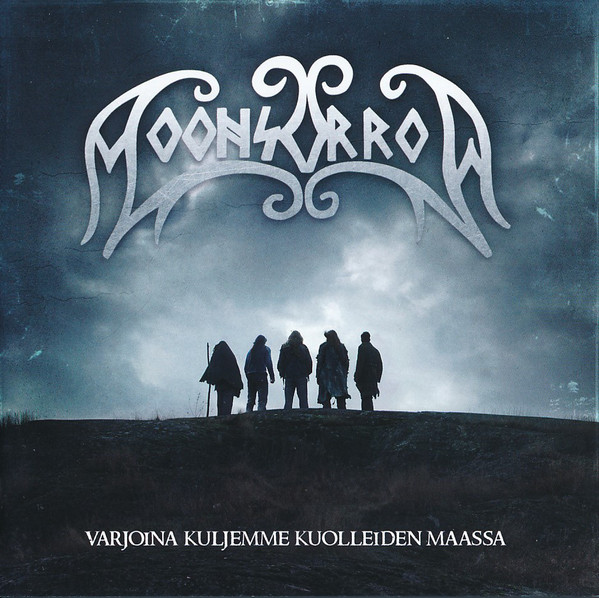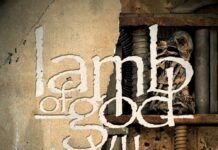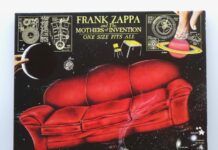Following the release of 2003’s “Kivenkäntäjä,” Finnish Viking/pagan/black metallers MOONSORROW started to become known as one of the best pagan metal bands to come out of Finland and perhaps the world. Today, we’re having a look back, not on “Kivenkantaja,” but “Varjoina kuljemme kuoleiden maassa,” or in English, “As Shadows We Walk in the World of the Dead,” which was released on February 21st, 2011 – 10 years ago today.
Let me be frank: there is one reason that I’ve chosen to look back on this album: “Huuto.” But I don’t plan to do this review in media res, so we’ll rewind to the beginning with “Tähdetön.” Worth mentioning, it was a delightfully cold and snowy winter night, during the writing of this, which certainly helped with the atmosphere.
The album begins its story with long epic, “Tähdetön” [starless], opening with droning riffs and a two-beat drum pounding, repeating slowly. When the vocals start, they uphold a fine balance between harsh and depressing, yet potently emotional. There’s darkness and despair, but there’s beauty within. The almost stoner-rock pacing of the song likewise works to its benefit as we get time to absorb what we’re experiencing. Halfway through, the song livens up with some pattern-danceable folky tunes that are juxtaposed against the occasional wail. The growls cover a wide range of styles as well, as they dip into a more deep, death metal-y feel at at least one point. Lyrically, the translation suggests that the lyrics are as dire-sounding as the music, as it seems to describe the “land of the dead” from the album’s title as a post-war wasteland where the stars are blotted out by smoke.
Gentle folk music, executed cinematically with the atmospheric sounds of someone walking and breathing heavily are the interlude, “Hävitetty”[Ravaged], which depicts the war-deadened land that they are leaving in order to survive. “Muinaiset,” or “ancient ones,” is a bit faster and a bit harsher, while maintaining its strong melodic background and Viking choir for flavor. Here, the weary survivors find refuge and face the thousand eyes of the ancient ones, and a new world. The next interlude is about hunger, exhaustion, and despair: “Nälkä, vasymys, ja epätoivo.” The weary travelers continue on, losing more and more of their party as the struggles increase.
Then we reach what I genuinely believe to be one of the greatest songs ever written: the 16+minute masterpiece that is “Huuto.” This is easily the “gateway to black metal” song for me (much like IN FLAMES‘ “Only for the Weak” was my intro to growls), as this was by far the harshest song (vocally) that I liked for a very long time. There’s something so deeply emotional in the melodies of this piece that they pull at me every time I hear it. The primordial sense of loss of hope permeates from this song every time Ville Sorvali asks, “Mistä löydämme tie eteenpäin?” or “where can we find the path forward,” as the survivors begin to lose their humanity. The stomping shamanic drums paired with the twanging mouth organ makes this a feast of despair. This isn’t a song one listens to every day – over-listening to this song would be an abuse, a waste. This is not your casual weekend blended whisky of a song, this is your 20 year highland aged Scottish rarity. You enjoy it seldomly, but each time you do, it’s an experience. It hurts me deep within that I’ve never heard this live.
There is no more music left in “Kuoleille” [to the dead], as the survivor stumbles on; the only sounds beyond their breath is the wind and their exhausted footfalls. At the end they begin to scream.
The album then begins its 16+ minute wind-down, “Kuoleiden maa” [land of the dead]. This track opens ferociously and emotively, as the survivor’s tale ends with their death at the side of a stream, giving up or maybe giving in after their struggles. This has some of the blackest-sounding moments on the album, a more garbled scream as it nears its conclusion, and a heavy, dark overall feel, particularly as it winds down. The band are certainly not afraid to take all the time in the world to express something musically.
If you want to hear some of the earliest Finnish melancholy, look no further than pagan metal bands like MOONSORROW. The marriage of music and hopelessness in this album is astounding and the Sorvali cousins certainly put themselves on the best-of Finnish composers list with this release, if they weren’t there already. This album has everything you want, from a story and through-line, the bleakest and most hopeless moments, yet an astounding amount of magic. My partner, reading in Finnish, though this album was about humanity wiping itself out through nuclear war, while myself reading a translation in English felt a far more mystical/pagan vibe in the story, so even on an individual level, this album offers a lot of options when it comes to perspective. If you’re looking to expand the extremities of the metal you’re into, or if you just love yourself some darkness and despair, or even if you just want some gorgeous pagan metal, this album is a must-have in your music collection.
Tracklist
- Tähdetön
- Hävitetty
- Muinaiset
- Nälkä, vasymys ja epätoivo
- Huuto
- Kuoleille
- Kuoleiden maa
Lineup
- Ville Sorvali – vocals, bass, fretless bass
- Henri Sorvali – keyboards, guitars, mouth harp, accordion, vocals, choir, mandolin, bouzouki, recorder
- Marko Tarvonen – drums, percussion, guitars, vocals (backing), choir
- Mitja Harvilahti – saw, choir, guitars, vocals (backing), autoharp
- Markus Eurén – keyboards, vocals (backing), choir
Label
Spinefarm
Links
Recent posts
[recent_post_carousel design=”design-1″]





